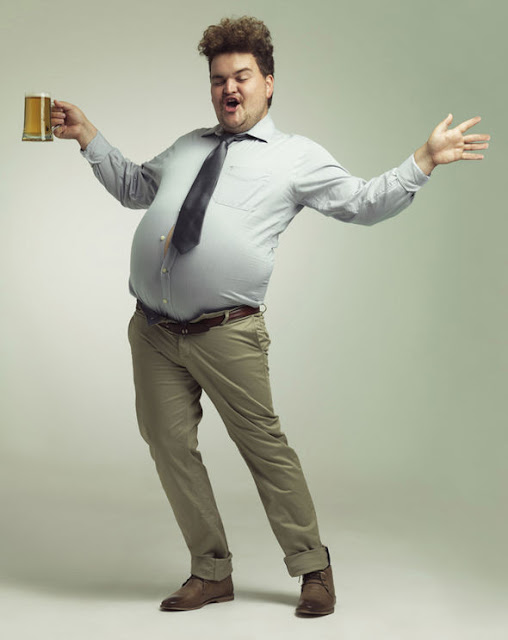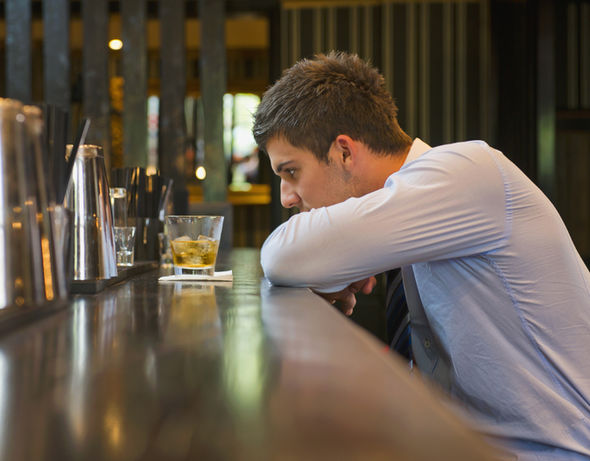DRY January is the word on everyone's lips after a heavy festive season, but how good is cutting out alcohol for you?
 |
| Alcohol withdrawal is a dangerous condition conducive with serious alcohol misuse |
Dry January is a modern phenomenon designed to raise money for charity while giving people a break from the booze - all in all a great idea.
But is cutting out alcohol from your life so dramatically - especially after a boozy December - actually good for your body?
Many believe slowing cutting down is the key to lowering the alcohol intake safely. NewsNewsBlog.blogspot.com spoke to United European Gastroenterology expert Professor Matthias Löhr, from the Karolinska Institute in Sweden, and Professor Roger Jones of Kings College London about these rumours.
The pair of Profs revealed the truth behind cutting out alcohol and - most importantly - how your body reacts.
Would you recommend people stop drinking so sharply, after a heavy Christmas?
Professor Matthias Löhr said: "If these people are not addicts - yes. The faster you get away from too much alcohol, the lower the chance to develop addiction and withdrawal symptoms in the future."
How does the body react to alcohol leaving the system?
Professor Löhr said: "Hallucinations are one symptom, then called delirium tremens (because the patients are shaking as well) and can include seizures. This would be part of the withdrawal syndrome after addiction/abuse over a prolonged period of time. Patients who are alcoholized may have severe hypoglycaemia (low blood sugar).
"After too much alcohol, one feels like a prolonged hang-over (what it is) with tiredness but inability to rest (because there is some excitation and tachycardia present)."
 |
| Dry January has been ruled as GOOD for the general public by two professors |
Too much alcohol causes tachycardia and turns the blood sour
Professor Matthias Löhr
How does dramatically cutting alcohol out of your diet – after a boozy Christmas – affect your body? Professor Löhr explained: "Alcohol cannot be considered part of a diet, to start with. It is in our culture part of a Christmas feast alright. Drinking in conjunction with food will result in a slower uptake of the alcohol."Too much alcohol causes tachycardia and turns the blood sour (acid). Intoxication affects many organs and systems. “Cutting alcohol out of the diet”, i.e. stopping intake at once and entirely is possible and the best thing to do in case a severe hangover and other bodily symptoms are present. There is absolutely no need to taper down the use. On the contrary."Being an alcohol addict is a completely different thing. Stopping may cause a withdrawal syndrome of various severity."
 |
| Professor Roger Jones believes cutting out alcohol is a good thing |
Is it true alcohol is the one substance – if addicted to – you shouldn't go cold turkey on? Professor Matthias Löhr: "Absolutely not. Stopping entirely is the only chance to get off the drug. This should be accomplished within a program (hard to do over the holidays) with experts in addiction medicine. How does dramatically cutting alcohol out of your diet – after a boozy Christmas – affect your body? Professor Löhr explained: "Alcohol cannot be considered part of a diet, to start with. It is in our culture part of a Christmas feast alright. Drinking in conjunction with food will result in a slower uptake of the alcohol."Too much alcohol causes tachycardia and turns the blood sour (acid). Intoxication affects many organs and systems. 'Cutting alcohol out of the diet', i.e. stopping intake at once and entirely is possible - and the best thing to do in case a severe hangover and other bodily symptoms are present. There is absolutely no need to taper down the use. On the contrary."He added: "Being an alcohol addict is a completely different thing. Stopping may cause a withdrawal syndrome of various severity.""Depending on the severity and length of the addiction, there are serious psychiatric and somatic symptoms that may require medication. "This is hardly accomplished by just drinking too much over the holidays. Alcohol addiction that will result in a severe withdrawal syndrome occurs after months and years of abuse. However, having just too much alcohol over the holidays rarely causes such a serious withdrawal syndrome."
 |
| The faster you get away from too much alcohol, the lower the chance to develop addiction |
Are there any specific actions, supplements or treatments for cleansing your body of alcohol? Professor Matthias Löhr explained: "People should take in light food with ingredients taken up easily, e.g. food containing sugar or carbohydrates. In the Mediterranean, people take olive oil, a spoon full, not more at a time. "To replenish electrolytes and salts, Coca Cola plus salty sticks (as for treatment of diarrhoea) is recommended."In other countries, coconut juice is used. To get the acid-base system in balance and counteract the loss of fluid, lots of liquids should be taken in to “flush” the system. "After severe drinking without adequate food intake, the body is also deplete of vitamins and trace elements. Therefore, such a substitution might improve the well-feeling (no scientific evidence for that). The same holds true for antioxidants."Professor Roger Jones, from Kings College London, added: "Europe has the highest per capita alcohol consumption of any region in the world. Somewhere between 15 and 20 per cent of Europeans are probably drinking too much. "Trends vary from country to country, but worrying trends include heavy and "binge" alcohol use in young people, particularly women, and steady, heavy drinking in more affluent, retired, often professional, groups."Alcohol has many health risks. Inebriation and abuse is associated with, for example, deaths from road traffic and other accidents, domestic violence, family breakdown and loss of jobs. "Excessive drinking causes damage to many body systems, notably the liver and brain, and alcohol is a major risk factor for the development of many cancers."Suddenly stopping drinking alcohol is only likely to be a problem in people who have been drinking very heavily for some time – they will develop alcohol withdrawal symptoms which can be very severe. In such cases supplements, including high dose B complex vitamins, are used."He added: "For most people who take alcohol in relative moderation, stopping suddenly is not associated with adverse effects and, quite to the contrary, is beneficial. "There is good evidence that having two or three alcohol-free days a week helps liver function to recover and reduces tolerance, habituation and dependence. In some countries longer periods of abstention are encouraged, such as "Dry July" in New Zealand, during which funds are raised to help support people living with cancer."So, the answer to the final question about stopping drinking suddenly after a "heavy Christmas" is an emphatic 'YES'."





Post a Comment Blogger Facebook Disqus